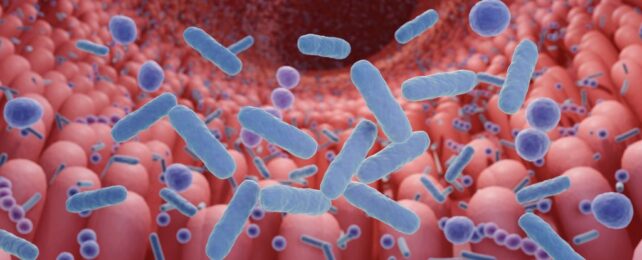The link between autism spectrum disorder (ASD) and the body's 'second brain' is more apparent than ever before.
A new paper, authored by no less than 43 scientists of various disciplines, has found the strongest link yet between gut microbes, host immunity, genetic expression in the nervous system, and dietary patterns.
The new analysis does not confirm autism's underlying causes, nor does it identify specific subtypes as other research has attempted, but rather reveals a more generalized gut profile that seems to be consistent among those with ASD.
If this crucial biomarker can be elucidated in further research, it could one day be used to diagnose ASD and probe potential treatments.
"Before this, we had smoke indicating the microbiome was involved in autism, and now we have fire," says microbiologist Rob Knight from the University of California San Diego.
"We can apply this approach to many other areas, from depression to Parkinson's to cancer, where we think the microbiome plays a role, but where we don't yet know exactly what the role is."
Today, scientists know that people with autism are more likely to experience gastrointestinal issues, such as constipation, diarrhea, bloating, and vomiting.
What's more, in recent years, researchers have begun to find links between the makeup of microbes that call our guts home and neurodevelopmental disorders, like ASD.
Nevertheless, this connection isn't always consistent, and some experts have argued it isn't gut bacteria that trigger ASD, necessarily; it could be that kids with autism are more likely to restrict their diets because of 'picky' eating, which in turn influences the kinds of bacteria that persist in the digestive tract.
The new study incorporates 10 existing datasets on autism and the microbiome, plus 15 other datasets regarding dietary patterns, metabolism, immune cell profiles, and gene expression profiles of the human brain.
The authors of the analysis say their findings boost "the statistical power and biological insight" into the gut-brain axis behind ASD, and provide "stronger associations among gut microbes, host immunity, brain expression and dietary patterns than previously reported".
The fundamental connection between the gut and the brain is itself a relatively new frontier in science. In 1992, a researcher named the gut "the neglected human organ", and it took until the 21st century for the term "human microbiome" to be properly conceptualized.
In the years since, research on the trillions of individual microbes found in our guts has blossomed, and yet experts still aren't really sure what to make of their results. To date, it's not yet clear what a healthy microbiome looks like, let alone an atypical one.
There are just so many variables to consider, especially because communication between the gut and the brain seems to be a two-way street, and because diet can so quickly change the mix of gut bacteria.
In 1998, a scientist by the name of ER Bolt first hypothesized abnormal gut microbiota could be involved in the development of ASD.
Those with autism, for instance, showed more species of Clostridium and Ruminococcus bacteria in their stool than that of a control group.
But these early studies were generally deemed to be of "low to moderate quality, predominantly due to small sample sizes", "inadequate or absent explanation of sources" of the stool samples, and "potential biases", according to a trio of Dutch nutrition researchers reviewing the evidence in 2014.
Even today, carefully designed, long-term studies are hard to come by, and there is little agreement from paper to paper.
The current analysis attempts to bridge that gap by comparing existing data on the gut and ASD. For each dataset, the research team designed an algorithm to match the best pairs of autistic and neurotypical individuals by age and sex, which are two common confounding factors in autism studies.
Rather than analyzing study averages, these 600 pairs were each considered a single data point, allowing researchers to simultaneously analyze the gut microbe differences across more than a thousand individuals.
In the end, the authors found major signatures of autism in certain metabolic pathways that were associated with diet, gene expression, and particular gut microbes.
What's more, these microbes matched those identified by a recent long-term study on fecal transplants among 18 children with ASD. At a 2-year follow-up, participants showed continued improvements in gastrointestinal and behavioral symptoms, based on the scale most commonly used to evaluate symptoms of ASD.
Together, the findings suggest a potential role of the microbiome in improving autism symptoms, although how those underlying gut changes might relate to actual brain changes is still not clear.
"We were able to harmonize seemingly disparate data from different studies and find a common language with which to unite them," explains Jamie Morton, who worked on the paper as a biostatistician at the Simons Foundation, a charitable organization that funds biomedical research.
"With this, we were able to identify a microbial signature that distinguishes autistic from neurotypical individuals across many studies. But the bigger point is that going forward, we need robust long-term studies that look at as many datasets as possible and understand how they change when there is a [therapeutic] intervention."
The study was published in Nature Neuroscience.
